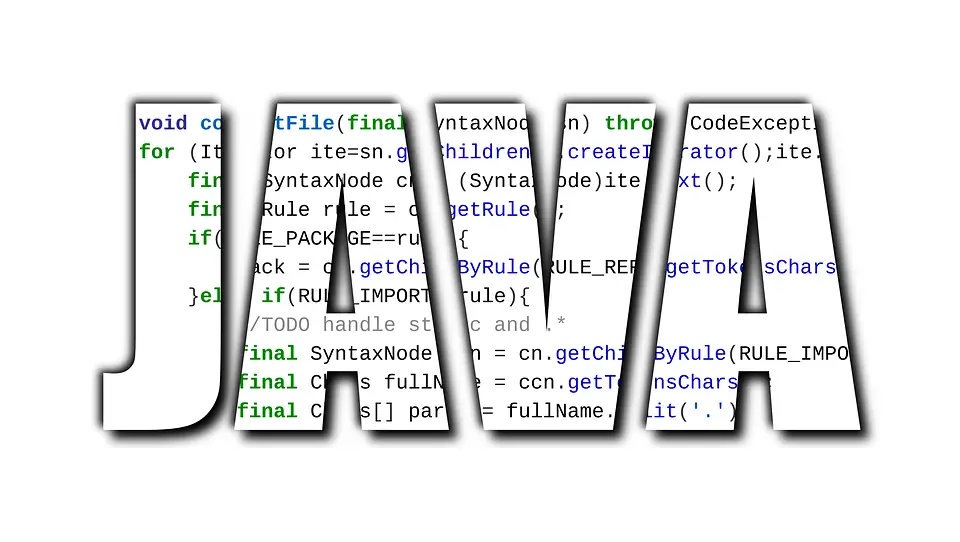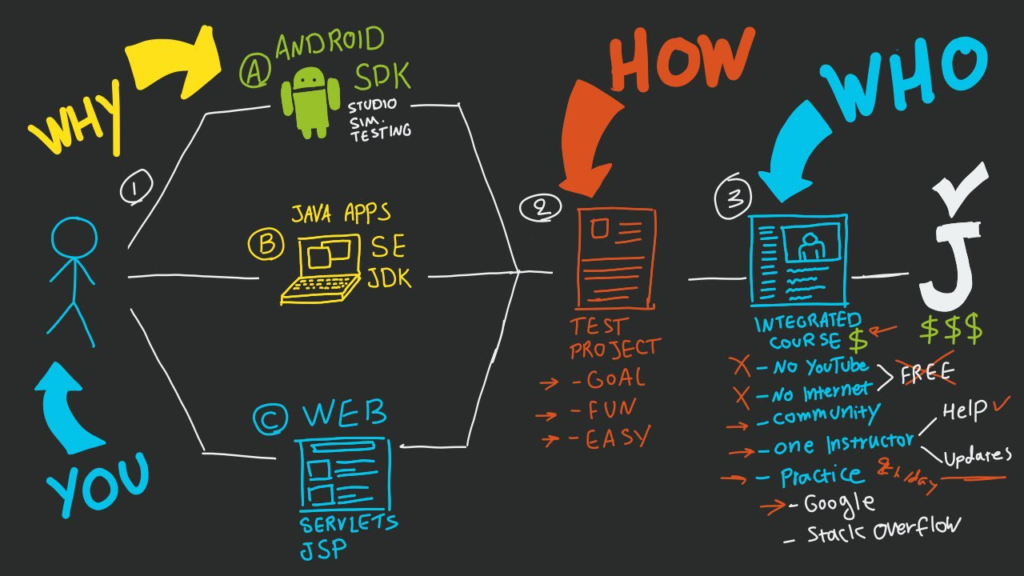Java is an object-oriented programming language that has gained popularity over the last two decades. Its utility and versatility can be gauged from the fact that it is used for building vast applications and powers nearly three billion devices. As it can be used at any scale — from programming a point of sale system to building complex enterprise-level applications, many Fortune 500 companies have adopted it. Java provides the versatility of writing code on one computer and executing it on another computer even if it has a different Operating System.
What Attracts Programmers to Java?

Java fulfills nearly all the ambitions of a career-oriented developer. Here are the items that are on top of a programmer’s wish-list and how Java meets it:
- Wide application — Programmers often look to take up coding languages that are versatile and offer multiple career paths. Java fits the bill perfectly since it is used for laptop applications, gaming consoles, navigation systems, healthcare devices, Blu-ray players, Android phones, and much more.
- Cross-industry appeal — It is used in any industry/function that leverages Information Technology to simplify its operations, which includes banking, finance, insurance, fin-tech, human resources, FMCG, manufacturing, automobile, etc. In the case industry is undergoing a low-growth phase, a java developer can switch to another and continue his career.
- High salaries — Given its global appeal with large businesses, java programmers are often one of the highest-paid and have stable jobs. An intermediate level experienced programmer can command a six-figure salary, which makes it an attractive option for developers.
- Challenging projects — Given its vastness, java programmers are always on a learning curve and tackle complex practical problems on a daily basis. New technologies come up all the time, and they need different approaches to programming, keeping a java programmer on his toes and in sync with the latest coding trends.
- Community support — Java has a global developers’ community that follows the same coding standards. Developers with all levels of expertise come together to exchange ideas and share their learnings.
How to Become a Java Developer from Scratch?
Deciding to take up Java programming is a no-brainer in today’s world. However, it needs a focused approach and persistence. Beginners can very easily get overwhelmed by its enormity and end up being frustrated.
Common Difficulties of Java Beginners
Learning something new is always tricky. Here are some of the most common difficulties that come up when you start learning Java:
- Getting caught up in theory — No matter how much you read about swimming, you are not going to learn anything unless you are in the water. Programming works the same. You need to get your hands dirty and start coding to learn it. Do not fall into the trap of trying to master the entire theory before you begin with hands-on.
- Avoiding practical — In continuation of the previous point, beginners often want to avoid writing wrong codes and tend to stay away from practical unless they feel confident. Ironically, you won’t feel confident about coding unless you get to it, make mistakes, and learn from them. We strongly recommend an 80:20 mix in favor of coding.
- Not asking questions — Beginners often want to just go with the flow and do not explore the bigger picture. If you really want to master java, you need to understand the guiding principles that drive it. Simply going through the flow and completing assignments just for the sake of it might be lucrative in the short term but it will hamper your growth in the future when it is difficult to unlearn and relearn.
- Giving up too early — Many beginners give up early as they are overwhelmed by initial difficulties and lose the drive to learn. It is important to be self-motivated – the more difficulties you face in the beginning, the easier it gets later on, and you learn more.
How to Avoid These Challenges?

You can avoid initial challenges by creating a training plan for yourself (more on this later). Set short, time-bound goals that are easy to track and focus on practicals. Leverage the knowledge of the community and communicate with experienced developers and your fellow learners to learn from their experience. It will help overcome hurdles and you will gain new perspectives.
Creating a training plan
Core Java is the foundation where you will learn the alphabet and grammar of the language. Get familiar with objects, classes, methods, primitive types, basic operators, conditional and loop statements and arrays.
Although every individual has a different learning speed and aptitude, following a systematic learning approach will help you tide over many initial obstacles. Depending upon the level of expertise you want to achieve, the following can be a good roadmap for your Core Java learning:
- OOP — Object Oriented Programming is the skeleton of java programs. Understanding the concepts of inheritance, polymorphism, abstraction, encapsulation, and virtual methods are important and require a mix of theory and practice.
- Java collections — Java Collections Framework allows you to define different objects having individual identities together into Collections, after which they behave as a single entity. This is key to understanding data structures.
- Java exceptions — Whether you are a beginner or an experienced developer, you are bound to make mistakes while writing programs. Learning about exceptions will help you pinpoint the root cause when your programs throw an error.
- Input/Output streams — You will need to move data around, and it will become a lot easier if you understand the concept of streams.
- Algorithms — An algorithm is a rough draft of a program and is language independent. If you are coming from a programming background, this must be familiar. Though there are libraries that already have codes for popular tasks like searching and sorting, writing them on your own will make you a better developer.
- Multithreading — Although an advanced concept, we recommend getting introduced to it.
- Java Patterns — Learn the best practices that experienced programmers follow globally so that your codes look professional.
- Unit testing — Other than being a good habit, this will prepare you for your likely first job as a Java engineer.
- Lambda expressions — Though these are yet to see universal adoption, learning lambda expressions for manipulations will give you an edge over other beginners.
- Serialization — JSON, sockets, RMI, HttpUrlConnection, etc are advanced topics but are important for converting an object into a byte stream, which is critical when working on different machines/platforms.
Choosing relevant websites and communities
Learning from reputed sources is as important as any other aspect of learning programming. The following websites have top quality material to make sure you reap the maximum rewards for your efforts:
- w3resource – It has a well-structured Java tutorial that is available for free. There is sufficient emphasis on theory. The course starts with simpler topics and gradually transitions to complex ones.
- Geeksforgeeks – This is one of the most comprehensive websites covering Java. The content is categorized into basic, easy, medium, hard, and expert. Some of the features include:
- Practical coding experience
- Help to prepare for interviews
- Learning from interview experience of other community members
- Preparing yourself by taking up company-specific content
- Codegym.cc – A great gamified learning resource with a focus on hands-on exercises and practical applications. It has a structured course that beginners who want to learn Java will find easy to follow. There are sufficient exercises that will ensure you do not get caught in the trap of reading too much theory.
The exercises have a fun element to them that puts inside a game, and as you keep learning new skills, you climb through the levels. Salient features of the site are:
- More than 600 short lessons
- Over 1200 lab exercises
- Virtual teacher to assess solutions
- Smooth transition from basic topics to advanced ones
- Created based on an extensive user feedback survey
Conclusion
Java offers a challenging and rewarding career. It has vast applications and offers multiple career paths. If you plan your approach well and choose the right resources to learn from, you can avoid the common beginners’ mistakes. Focus on applied learning, code as much as you can, make mistakes, correct them and you will be set for an exciting career ahead!
